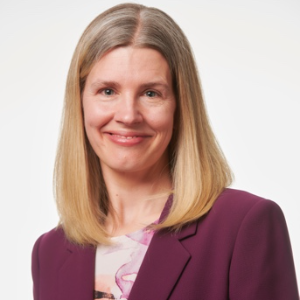Title : The Augsburg health commons: Using research and experiential learning to address structural inequities in care
Abstract:
The purpose of this presentation is twofold. First, the model of care for nurse-led drop-in centers, called the Augsburg Health Commons (AHC), will be introduced, which is grounded in the principles of transcultural nursing. The nursing faculty at Augsburg University founded the AHC and have been teaching students about caring for those most marginalized in these drop-in centers for over thirty years (Enestvedt et al., 2018). Most of the guests at the AHC are experiencing homelessness, immigration, or social isolation. The nursing practice model includes the stages of acknowledging another’s needs, attending to their struggles, affirming strengths, and ultimately accompanying the other on a shared journey. Students from various disciplines have ongoing experiences onsite, where they are able to not only challenge themselves to reflect on their biases but also begin to understand the deeply complex issues that perpetuate health inequities. There are four health commons locations through the Twin Cities, each with a specific population it serves with local community partners. The second purpose will be to describe the impact this learning has had on students and to also share the findings of a qualitative study where people with lived experiences of marginalization shared their challenges with accessing care. Ultimately, the focus will be on sharing how interdisciplinary and academic-community collaborations can foster inclusion in innovative ways while creating transcultural practicum experiences that allow students to recognize and name systemic issues that contribute to inequities in health. Centering the voices of those with lived experiences is at the heart of the care and the research conducted at the AHC, which must include cultural humility (Pacquiao et al., 2023; Foronda, 2019). Various calls to take action to embed educational experiences to increase students’ knowledge and ability to respond to circumstances such as health inequities and SDOH have validated the importance of this work (Pacquiao et al., 2023; Clark, 2022; Pendayal et al., 2022; Bryant-Moore et al., 2018). The significance of this presentation will be to provide an example of how research and education can help nurses unpack health inequities and injustices that limit individuals' well-being.
Audience Take Away Notes:
- This presentation will provide an example of how education in nursing can focus on addressing structural inequities in healthcare.
- The audience will gain a further understanding of the experiences of marginalized people and the barriers they encounter when accessing care.
- The research project that will be discussed could be easily replicated by other faculty and will help faculty understand innovative ways to teach students about social determinants of health and DEIJ issues in nursing practice. This work is supported by a Health Equity Innovation Fund grant from AARP and the Center to Champion Nursing in America, a joint initiative of AARP Foundation, AARP, and the Robert Wood Johnson Foundation.



